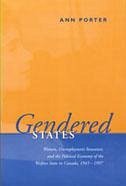
Gendered Mobilizations and Intersectional Challenges
Contemporary Social Movements in Europe and North America
Herausgeber: Irvine, Jill A.; Montoya, Celeste; Lang, Sabine
Versandkostenfrei!
Versandfertig in 1-2 Wochen
46,99 €
inkl. MwSt.

PAYBACK Punkte
23 °P sammeln!
A long and ongoing challenge for social justice movements has been how to address difference. Traditional strategies have often emphasized universalizing messages and common identities as means of facilitating collective action. Feminist movements, gay liberation movements, racial justice movements, and even labour movements, have all focused predominantly on respective singular dimensions of oppression. Each has called on diverse groups of people to mobilize, but without necessarily acknowledging or grappling with other relevant dimensions of identity and oppression. While focusing on commona...
A long and ongoing challenge for social justice movements has been how to address difference. Traditional strategies have often emphasized universalizing messages and common identities as means of facilitating collective action. Feminist movements, gay liberation movements, racial justice movements, and even labour movements, have all focused predominantly on respective singular dimensions of oppression. Each has called on diverse groups of people to mobilize, but without necessarily acknowledging or grappling with other relevant dimensions of identity and oppression. While focusing on commonality can be an effective means of mobilization, universalist messages can also obscure difference and can serve to exclude and marginalize groups in already precarious positions. Scholars and activists, particularly those located at the intersection of these movements, have long advocated for more inclusive approaches that acknowledge the significance and complexity of different social locations, with mixed success. Gendered Mobilizations and Intersectional Challenges provides a much-needed intersectional analysis of social movements in Europe and North America. With an emphasis on gendered mobilization, it looks at movements traditionally understood and/or classified as singularly gendered as well as those organized around other dimensions of identity and oppression or at the intersection of multiple dimensions.














